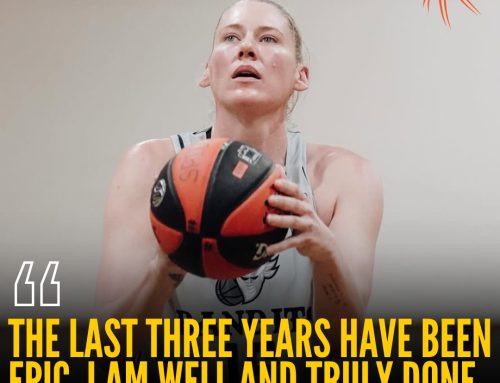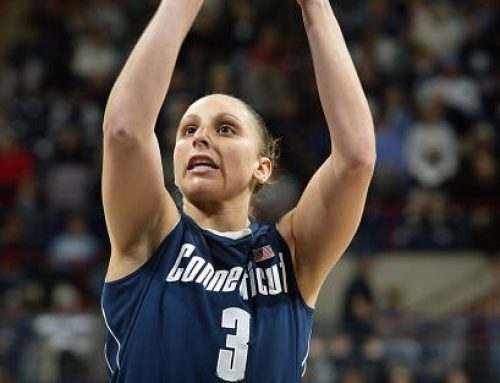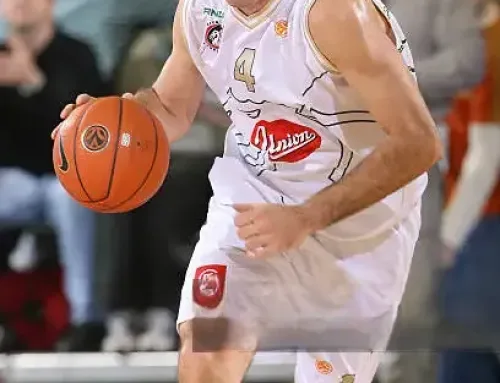
Balancing Parenthood and Professional Sports: The Challenges Faced by Female Athletes
Pregnancy is a beautiful and life-changing experience for every woman, but it can be particularly challenging for professional athletes. The physical demands of playing basketball at a high level and the stress of balancing work with the challenges of pregnancy can take a huge toll on a female athlete’s body and mental health. In Australia, female basketball players face a unique set of challenges when it comes to pregnancy and professional basketball.
Female athletes who become pregnant during their basketball careers often face unique challenges that their male counterparts do not. They may have to take time off from training and competition, which can impact their performance and potentially jeopardise their place on the team. Pro soccer player Jess McDonald’s career has been marked by trading across multiple teams, making it challenging to find and afford childcare in new cities. Frequently sharing hotel rooms with her then-8-month-old son and bringing him to practice, she faced scrutiny when her performance on the court suffered. This highlights the lack of understanding and support pregnant athletes can encounter in the sports industry.
The journey of motherhood is a remarkable experience, but for female professional athletes, the demands of their careers add a unique layer of complexity. From the difficulties of finding affordable childcare to facing attitudes of ambivalence or hostility, women in sports have long struggled to navigate the balance between family and career. In this article, we delve into the challenges faced by female athletes, highlighting stories from prominent figures in women’s sports and exploring the progress made in supporting athletes who become mothers.
The Story of Jess McDonald
Pro soccer player Jess McDonald’s career has been marked by trading across multiple teams, making it challenging to find and afford childcare in new cities. Frequently sharing hotel rooms with her then-8-month-old son and bringing him to practice, she faced scrutiny when her performance on the court suffered. This highlights the lack of understanding and support pregnant athletes can encounter in the sports industry.
Coach Charli Turner Thorne’s Journey
Charli Turner Thorne, the Arizona State basketball coach, had three children without taking maternity leave. Her experience reflects the limited options and expectations placed on women in sports. Despite being a successful coach, she returned to work just two days after giving birth, exemplifying the pressure to quickly resume professional responsibilities.
The Harassment Issue
The harassment faced by WNBA player Dearica Hamby for getting pregnant during the season brings attention to the need for clearer rules and support systems within professional sports organizations. While Las Vegas Aces Coach Becky Hammon denied bullying Hamby, the incident underscores the importance of defining policies and creating a nurturing environment for pregnant athletes.
Historical Attitudes and Progress
Throughout the years, pregnant athletes have encountered a range of attitudes, from ambivalence to outright hostility, from leagues, coaches, fellow players, and sponsors. The cases of Olympic runners Allyson Felix and Kara Goucher, who faced pay cuts and termination for becoming pregnant, demonstrate the ongoing struggles. However, progress has been made, with the introduction of paid maternity leave and support systems, such as the WNBA’s recent collective bargaining agreement.
Current Support Systems
Under the WNBA’s collective bargaining agreement, players receive their full salary during maternity leave, and players with children under 13 can receive financial support for childcare expenses. Additionally, elite athletes with eight or more seasons can be reimbursed for adoption, surrogacy, egg freezing, or other fertility-related costs. These measures represent a significant step forward in supporting athletes who become mothers.
Summary
While strides have been made in supporting female athletes who become mothers, there is still a long way to go. Attitudes need to shift, and further improvements should be made to provide comprehensive support systems and flexibility that allow women to excel both as athletes and mothers. The stories shared by Jess McDonald, Charli Turner Thorne, and others emphasise the need for continued progress in the sports industry to ensure that female athletes can thrive both on and off the field.
Female athletes in Australia are at the forefront of creating change when it comes to balancing pregnancy and professional basketball. They are speaking up and sharing their experiences, which is helping to raise awareness of the challenges they face and to push for better support and policies. For example, the Australian Basketballers’ Association launched a Pregnancy and Motherhood Policy that provides a range of support services for female athletes who are pregnant or have recently given birth. This includes access to specialist medical care, income protection, and flexible training and competition schedules.
The WNBL has also implemented a new policy that provides players with access to additional support during pregnancy and postpartum periods. Specifically, the policy offers financial assistance for medical costs and provides resources to help players balance the demands of motherhood with their professional basketball careers. Additionally, the policy includes provisions for players to bring their children to training sessions and games, as well as providing access to childcare services during these times.
Beyond the WNBL, there is also the Female Athlete Network, which provides resources and support for female athletes across a range of sports, as well as athletes themselves who have spoken out about their experiences and the need for greater support. As more attention is brought to the issue, it is likely that additional policies and programs will be developed to better support female athletes who become pregnant while pursuing their professional basketball careers.
It is time for the sports industry to step up and offer better support and understanding for female athletes who are navigating pregnancy and motherhood while also pursuing their dreams. As fans, we can also play our part in supporting female athletes by advocating for better policies and representation in the media. Let us celebrate and support female athletes not only for their athletic abilities but also for their strength and resilience as mothers and role models. Together, we can create a more inclusive and equitable sports industry for all.



